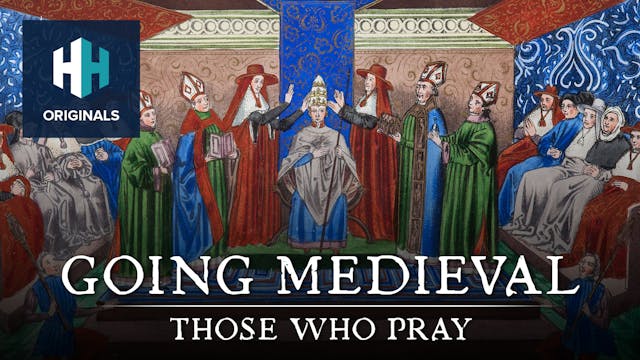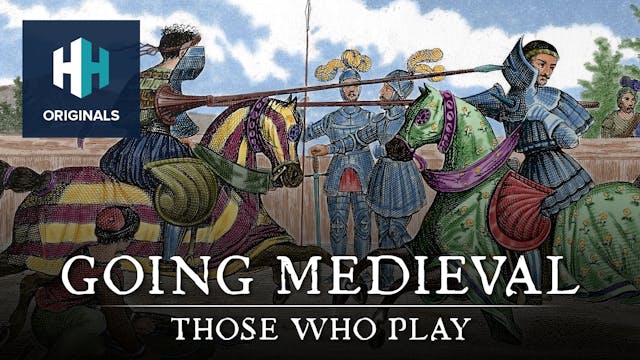Whilst the majority of people who worked in the Medieval Period were peasants, a significant community of merchants and tradesmen existed, the majority of whom belonged to one of the most powerful and influential groups in medieval Europe - the Guilds. Guilds were associations of artisans and merchants who oversaw the practice of their craft or trade in a particular area. They were able to command prestige and power over medieval populations and membership of these organisations was extremely desirable. The Grocers' Guild for example, which oversaw the trade in spices (one of the most expensive and important commodities in the Middle Ages) was an incredibly rich and powerful association as is very apparent by the opulence and grandeur of Grocers' Hall in London. In this episode of Going Medieval, Dr Eleanor Janega visits the banqueting hall to explore the lives of those who earned in medieval London.
Up Next in Season 1
-
Going Medieval: Those Who Pray
One of the most unifying elements of the Medieval Period was the Roman Catholic Church. All classes and ranks of people, whether that be nobles, peasants or tradesmen, were profoundly affected by the rulings of the church. A hierachy existed within the clergy. Following the pope, in order of rank...
-
Going Medieval: Those Who Play
In the medieval feudal system, the nobility were generally those who held a fief, often land or office under vassalage in exchange for military allegiance to their sovereign. Living alongside serfs, it was their duty to ensure that the peasants, craftsmen and clergymen were defended so that they ...


